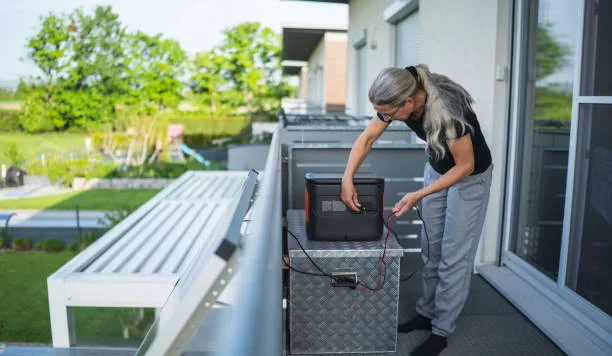Home Battery power Storage: The Future of Your Household Energy
In recent years, the concept of home battery power storage has gained significant traction as households seek more control over their energy consumption, costs, and environmental impact. This technology allows homeowners to store excess electricity generated from renewable sources like solar panels or wind turbines for later use, reducing reliance on the grid and potentially lowering energy bills. As we look towards a future increasingly defined by sustainability and energy independence, home battery storage systems are emerging as a crucial component of the residential energy landscape.
The Basics of Home Battery Power Storage
Home battery energy storage systems operate by storing electricity generated during times of surplus, typically when renewable energy sources produce more power than the household requires. These systems use rechargeable batteries to store this excess energy, which can then be discharged when energy demand exceeds supply or during periods of low renewable energy generation. This process helps homeowners optimize their energy use, maximize self-consumption of renewable energy, and minimize reliance on electricity from the grid.

Benefits of Home Battery Energy Power Systems
Energy Independence: One of the primary benefits of home battery storage is its ability to provide households with greater energy independence. By storing energy locally, homeowners can reduce their dependence on the grid, especially during peak demand periods or in areas prone to power outages.
Cost Savings: Home battery storage systems can help homeowners save money on their electricity bills. By storing excess energy generated during off-peak times or when electricity rates are lower, households can use stored energy during peak hours when electricity costs are typically higher, thereby reducing overall energy expenses.
Environmental Impact: Utilizing home battery power storage alongside renewable energy sources such as solar or wind power contributes to reducing greenhouse gas emissions. By enabling more efficient use of renewable energy and reducing reliance on fossil fuels, these systems support environmental sustainability efforts.
Enhanced Grid Stability: Home battery power systems can also contribute to grid stability and resilience. By reducing peak demand on the grid and providing backup power during outages, these systems help alleviate strain on utility infrastructure and improve overall reliability.
Technological Advances and Market Trends
Advancements in battery technology, coupled with decreasing costs and increasing efficiency, are driving the adoption of home battery energy storage systems. Manufacturers are continually improving battery performance, durability, and safety standards, making these systems more accessible and attractive to homeowners.
Challenges and Considerations
Despite their benefits, home battery power storage systems face challenges such as initial costs, system integration complexities, and varying regulatory frameworks. Addressing these challenges requires continued technological innovation, supportive policies, and consumer education to ensure widespread adoption and maximum benefits for homeowners.
Future Outlook
Looking ahead, the future of home battery energy storage appears promising. As renewable energy adoption continues to grow, and as homeowners become more energy-conscious and environmentally aware, the demand for these systems is expected to rise. Innovations in battery technology and energy management solutions will further enhance the capabilities and cost-effectiveness of home battery storage, making it an integral part of smart homes and sustainable living.
Conclusion
Steel storage containers have proven to be a versatile, durable, and cost-effective solution for a wide range of storage and logistical needs. Their adaptability to various applications, from shipping and on-site storage to modular buildings and emergency response, makes them an invaluable asset in today’s fast-paced world. As industries continue to evolve and seek efficient storage solutions, steel containers are poised to remain a cornerstone of modern logistics and storage strategies.
